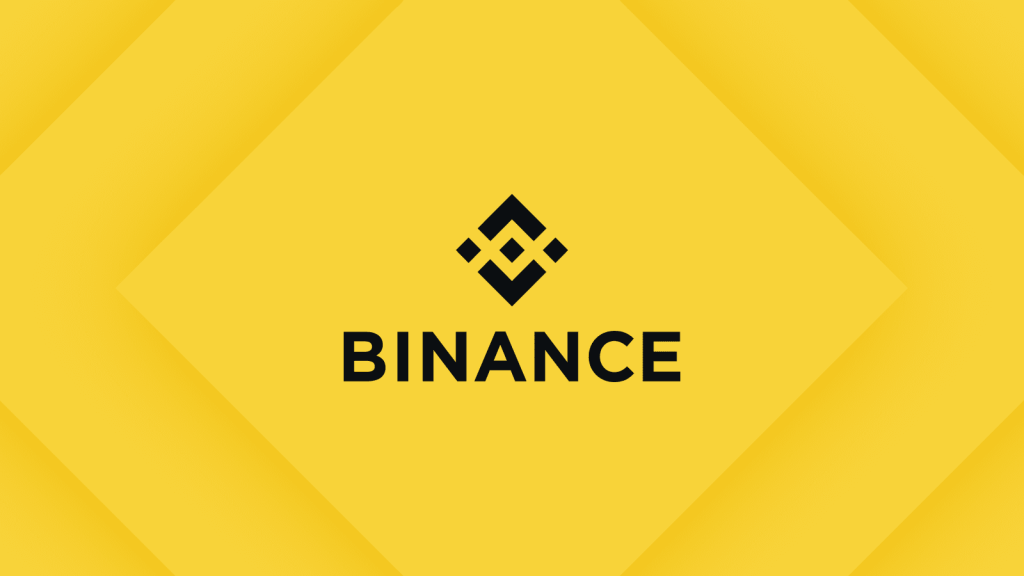
Cryptocurrency is buzzing in Pakistan!
More and more people are getting curious about digital currencies like Bitcoin and Ethereum.
They are drawn by the promise of new financial opportunities.
But where there’s excitement and potential profit, unfortunately, scammers are never far behind.
In Pakistan, the rising interest in crypto has also brought a wave of scams.
This has left many people with empty pockets and shattered hopes.
Don’t let yourself be the next victim!
It’s super important to be aware of the tricks fraudsters use.
Let’s break down five common crypto scams hitting Pakistan.
And most importantly, learn how to steer clear of them.
Think of me as your friendly guide in the crypto world!
1. Phishing Scams: Don’t Take the Bait!

Imagine getting an email.
It looks exactly like it’s from your crypto exchange or wallet.
It might warn of a security breach.
And urge you to click a link and “verify your account.”
That’s probably a phishing scam.
Cybercriminals are clever at creating fake emails and websites.
They trick you into handing over your sensitive info.
Think private keys, passwords, or login details.
They’re basically trying to fish for your information.
Hence the name “phishing.”
How to Avoid Phishing:
- Double-check the sender:
Always scrutinize the sender’s email address.
Real companies use official domains.
Be wary of Gmail, Yahoo, or misspelled addresses.
If it’s from a weird email address, be extra cautious.
- Beware of suspicious links:
Don’t click links in emails without verifying.
Instead, type the website address directly into your browser.
It’s always safer to type the address yourself.
- Never share private keys or passwords:
No legitimate crypto platform will EVER ask for your private keys or passwords via email or message.
Keep these sacred!
Think of your private keys like the super-secret PIN to your bank account.
You’d never give that away, right?
- Enable 2FA:
Two-Factor Authentication adds an extra layer of security.
Use it on all your crypto accounts.
It’s like having a double lock on your door.
2. Ponzi Schemes: Promises Too Good to Be True? Run!

“Guaranteed high returns with zero risk!”
Sounds amazing, right?
Wrong! It’s a classic Ponzi scheme.
And trust me, you want to stay far away from these.
These scams lure you in with the promise of quick riches.
Early investors might even see some payouts.
But that money comes from new investors, not actual profits.
Eventually, the whole thing collapses.
And the scammers vanish with everyone’s funds.
It’s like a house of cards.
It looks impressive at first, but it’s bound to fall apart.
Read more: The Current Bitcoin Bear Market: What Pakistani Investors Need to Know
How to Avoid Ponzi Schemes:
- Skepticism is your superpower:
Be extremely wary of guaranteed returns.
Especially in the volatile crypto market.
Remember, in crypto, like in life, there are no guarantees of easy riches.
- Do your homework:
Research the team and project behind any investment opportunity.
Are they transparent and credible?
Look them up online, see if they have a real history and reputation.
- Understand the business model:
How are these promised returns actually generated?
If it’s vague or sounds like magic, it’s a red flag.
If you can’t understand how they’re making money, that’s a big warning sign.
- Trust your gut:
If it feels “too good to be true,” it almost always is. Walk away.
Your instincts are often right. Don’t ignore that nagging feeling.
3. Fake Wallets and Exchanges: Imitation is Not the Sincerest Form of Flattery

Scammers are getting sophisticated! They create fake crypto wallets and exchanges.
They look almost identical to the real deal. You might think you’re using a trusted platform.
But it’s a trap to steal your funds and personal data. It’s like walking into a shop.
It looks just like a real brand store. But it’s actually selling fakes.
And in this case, they’re stealing your money!
How to Avoid Fake Platforms:
- Verify the URL:
Double-check the website address.
Look for the official URL and ensure it’s spelled correctly.
Bookmark the real website so you always go to the right place.
- Security Check:
Is the website using HTTPS (padlock icon in the address bar)?
Look for security certifications.
The “HTTPS” and the padlock mean the website is trying to keep your info safe.
- Read reviews:
See what other users are saying about the wallet or exchange.
Reputable platforms will have a solid online presence and user feedback.
(But be wary of fake reviews too!).
Check trusted review sites and forums.
- Stick to known names:
Start with well-established and reputable exchanges and wallets.
It’s generally safer to go with the big, well-known platforms.
Especially when you’re starting out.
4. Social Media Scams: Beware the “Crypto Guru” in Your DMs

Social media is a hotbed for crypto scams.
Platforms like Facebook, Telegram, TikTok, and even WhatsApp are swarming with fraudsters.
They create fake profiles, join crypto groups.
And send unsolicited messages promoting “amazing investment opportunities” or “exclusive crypto deals.”
They often use flashy visuals, fake testimonials, and high-pressure tactics.
Think of them as online salespeople.
They are way too pushy.
And selling something that’s probably worthless.
How to Avoid Social Media Scams:
- Be cautious of unsolicited messages:
Ignore DMs from strangers promising crypto riches.
If someone you don’t know is DMing you about crypto investments, just ignore it.
- Don’t be rushed:
Scammers thrive on urgency.
Legitimate opportunities don’t require you to invest right now.
Real investments take time and careful thought.
Not quick decisions under pressure.
- Verify claims independently:
Don’t just take their word for it.
Research any investment opportunity from independent sources.
Google it!
See what reputable news sites and crypto experts are saying.
- Report suspicious accounts:
Help keep social media platforms safer by reporting scam profiles.
Let’s help clean up social media and make it safer for everyone!
5. Romance Scams (Pig Butchering): Love Hurts, Especially Your Wallet

This is a particularly cruel scam.
Fraudsters build fake online relationships.
Often over weeks or months.
Gaining your trust and affection.
Once they’ve emotionally hooked you.
They’ll start talking about crypto investments.
Painting a rosy picture of easy profits.
They’ll pressure you to invest.
And once you send your crypto, they disappear.
Leaving you heartbroken and financially drained.
This is sometimes called “pig butchering.”
Because victims are “fattened up” with attention before being defrauded.
It’s really sad because they play with people’s emotions just to steal their money.
How to Avoid Romance Scams:
- Be wary of fast-moving online romances:
Be cautious if someone you’ve only met online professes strong feelings very quickly.
Real relationships take time to build.
- Never send money to someone you haven’t met:
This is a golden rule.
No matter how convincing they seem.
Never send money or crypto to someone you’ve only interacted with online.
No matter what sob story they tell you, just don’t send money.
- Reverse image search profiles:
Check if their profile picture is stolen from someone else online.
You can easily do this on Google Images.
It’s a quick way to spot fake profiles.
- Talk to someone you trust:
If you’re in an online relationship that’s turning to finance, discuss it with a friend or family member.
Sometimes, an outside opinion can really help you see things clearly.
The Case of the Binance-Linked Apps: A Pakistani Crypto Scam Story

Just a few years ago, Pakistan witnessed a major crypto scam.
It highlights how easily people can be deceived.
As reported by GNN News, Pakistani citizens were defrauded of billions of rupees.
This was through eleven fake online applications.
They falsely claimed to be linked to the popular cryptocurrency exchange, Binance.
This is a really important story to understand.
Because it shows how these scams can actually happen.
You can watch GNN reporting below:
Here’s how it worked:
- False Association:
The scammers used Binance’s name to gain credibility.
Knowing it’s a well-known platform.
They basically used Binance’s good name to trick people.
- Enticing Apps:
Users were lured to download these apps.
(Names like HHC, HPFox, AVG, UG, OkMili were mentioned).
These apps looked legit, but they were completely fake.
- Fake Trading:
They were asked to create Binance accounts.
And link them to these fraudulent apps.
A minimum investment of $100 USD was required.
They made it sound easy to start investing.
- “DT Currency” Illusion:
Users deposited funds and received a fake “DT currency.”
To trade within the app. It was all smoke and mirrors.
The “DT currency” wasn’t real.
- Manipulated Charts & Signals:
The apps showed fake Bitcoin price charts.
And used Telegram groups with anonymous “admins.”
To give fake trading signals.
Encouraging users to invest more and more.
They were basically gambling with fake money and fake advice. The Result?
Thousands of Pakistanis lost their money.
When these apps vanished overnight.
The FIA (Federal Investigation Agency) investigated.
Clarifying that Binance itself wasn’t involved in the fraud.
But these apps exploited Binance’s platform and reputation.
It was a tough lesson for many people. This incident is a stark reminder.
Always be incredibly cautious. Even when something seems to be associated with a reputable name.
Don’t let your guard down, even if it looks like a safe bet.
Conclusion
The world of cryptocurrency in Pakistan is full of potential.
But it’s also attracting scammers.
Staying informed, being skeptical, and following these safety tips.
This can significantly reduce your risk of falling victim to crypto fraud.
Remember, if something sounds too good to be true, it probably is.
Crypto can be exciting, but it’s also risky.
Let’s be smart and protect ourselves!
Disclaimer:
This blog post is for informational purposes only.
And should not be considered financial advice.
Cryptocurrency investments are inherently risky.
Always conduct thorough research.
And consult with a financial advisor before making any investment decisions.
I’m here to give you information, not tell you what to do with your money.
Always do your own research.
And talk to a financial expert if you’re thinking about investing.




